Based on many interviews with people from all over the world, these are the things foreigners find hardest to adapt to after moving to Norway. Prepare for a journey of discovery and adaptation…
Are you new to Norway? Welcome! Whether you’ve bagged a job in Oslo, you’ve arrived in Trondheim to study, or you’re following the love of your life, I wish you all the best in your relocation.

However, moving to this picturesque country comes with a set of cultural nuances that can be quite a shock for newcomers.
From the high cost of living to the unyielding embrace of nature in all seasons, let’s dive into the adjustments foreigners face as they navigate the rich traditions and social norms of Norwegian life.
Now, it’s important to say that I’m not claiming that all these things will be difficult for you personally! Different people from different countries will have different norms.
But after more than 80 episodes of the Life in Norway Show, on which I (usually) interview foreign-born residents of Norway, I’d like to share with you the most common challenges I hear about.
The Cost of Relocation
One of the first shocks many newcomers face is the high cost of living in Norway. From groceries to housing, prices are significantly higher than in many other countries.
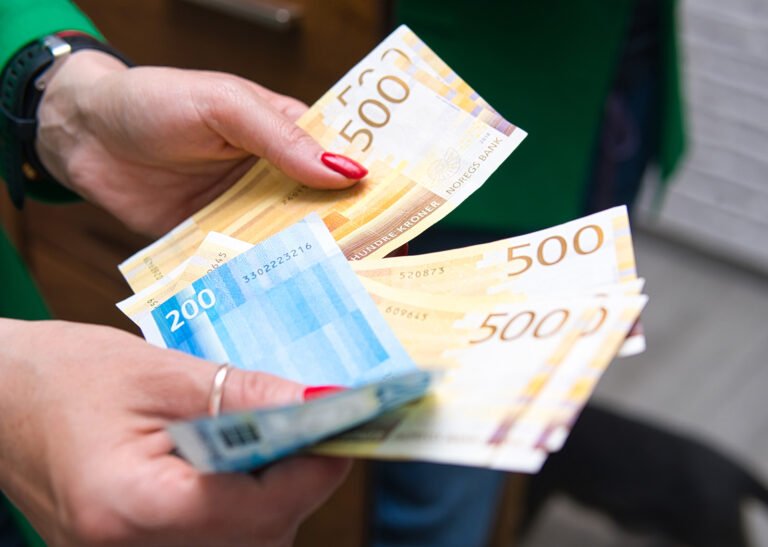
This is partly due to Norway’s strong economy and high wages. Once you're settled into everyday life and you're “in the system”, i.e. earning money in kroner, the cost of living becomes a little less of an issue.
However, for new residents, especially those still looking for employment, the relocation period can be a major financial challenge.
Renting a place to live is a hurdle at the best of times. But newcomers may need to stump up as much as three months' rent as a deposit, plus their first month's rent in advance.
Budgeting becomes crucial, and many find themselves having to make compromises, whether it’s living in smaller accommodations than you’re used to, or being more frugal with day-to-day expenses.
An Outdoors Lifestyle
Norway’s stunning nature is no secret, and the locals make the most of it. An outdoors lifestyle is deeply ingrained in the Norwegian culture, with activities such as hiking, skiing, and fishing being common pastimes.
While initially challenging for those not used to the cold and rugged environments, getting involved in these activities offers immense opportunities to integrate into the community and enjoy the natural beauty of Norway in a truly authentic way.
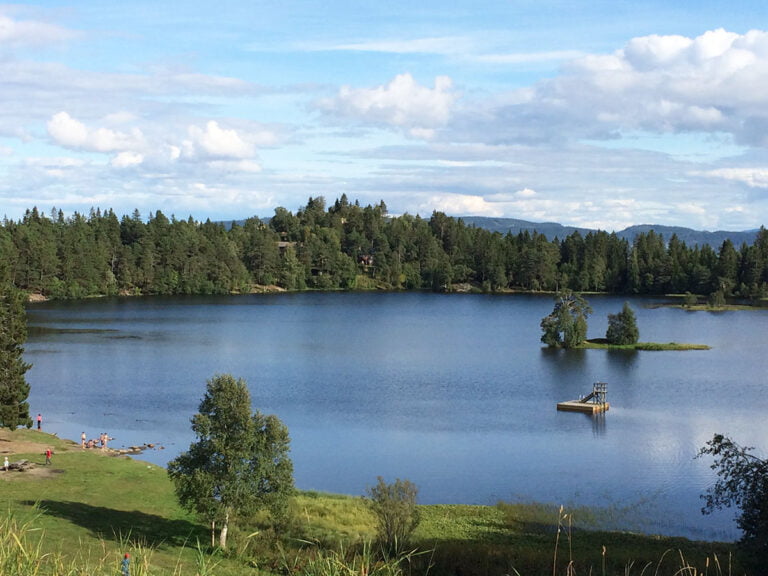
This active engagement with nature is supported by a robust infrastructure of well-maintained trails, ski resorts, and public access to lakes and forests.
Don't be surprised if a colleague invites you on a hike. Just beware, what they describe as a “short walk” may well last several hours. That's a tale I've heard from numerous newcomers!
If you're a city dweller and intimidated by the idea of getting out into the wilderness, it's easy to get started. Every city offers easy access to nature, including the T-Bane into Nordmarka in Oslo, the funicular and cable car in Bergen, and the tram into Bymarka in Trondheim.
Closed on Sundays
Coming to Norway, many are surprised to find that most shops are closed on Sundays. This practice is rooted in Christianity, providing a day of rest and time to spend with family.
For foreigners used to a seven-day shopping week, this can be inconvenient, necessitating better planning and adjustment to the local rhythm of life.
It encourages a slower pace on Sundays, pushing newcomers to explore outdoor activities or simply relax at home.
An Early Lunch
Norwegians typically have lunch around 11:00 to 11:30am, which is earlier than in many other countries. Workplaces often have designated lunch breaks, and it's common for people to bring a packed lunch from home.
This early lunch culture can be surprising for newcomers, who may have to adjust their eating schedules accordingly. It’s also an opportunity to embrace another aspect of Norwegian life: the matpakke, or packed lunch.

Typically, this consists of slices of bread topped with simple ingredients like cheese or lean meats, accompanied by fruits or vegetables. The slices are separated with special ‘matpakke paper' available in most supermarkets.
Coffee Culture
Norway has one of the highest per capita rates of coffee consumption in the world. On average, Norwegians drink more than three cups of coffee a day.
In Norway, coffee is not just a beverage. It’s a social lubricant, a break from work, and for many, an essential part of the morning routine.
Newcomers might find the coffee stronger than they’re used to, and the frequent coffee breaks throughout the day can be an unexpected, yet pleasant aspect of daily life.
Engaging in coffee culture is a great way to socialise and integrate into Norwegian society. Don't like coffee? Grab a cup of tea. No-one will mind!
Informal Workplaces
Norwegian office culture values informality and equal contribution, fostering a work environment where hierarchy takes a back seat.
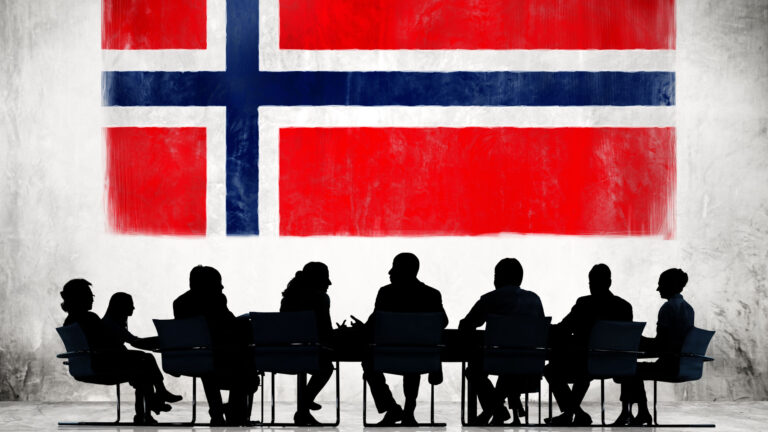
In this setting, all employees are encouraged to engage openly and share their perspectives, which enhances creativity and problem-solving.
This approach not only democratizes the decision-making process but also boosts morale and builds a sense of community among team members.
For newcomers, adapting to this direct and participative style may require some adjustment, but it is a rewarding experience that leads to a more dynamic and inclusive workplace.
This culture extends to casual interactions and socialising after work, further blurring the lines between levels of the organisation and promoting a more unified team spirit.
Challenges of Buying Alcohol
Alcohol regulations in Norway are stricter than in many other countries. Wine and spirits are sold exclusively in government-run stores called Vinmonopolet, with limited hours and higher prices due to taxes aimed at reducing consumption.
Vinmonopolet stores close early, especially on Saturdays, and are not open at all on Sundays or on public holidays.
Beer below 4.7% ABV can be bought in supermarkets but only before 8pm on weekdays and 6pm on Saturdays. Even the smaller supermarkets that are open on Sundays cannot sell any alcohol whatsoever.
Licensed bars, pubs, and restaurants can sell alcohol when they are open, regardless of the day, but this is an expensive option, of course!
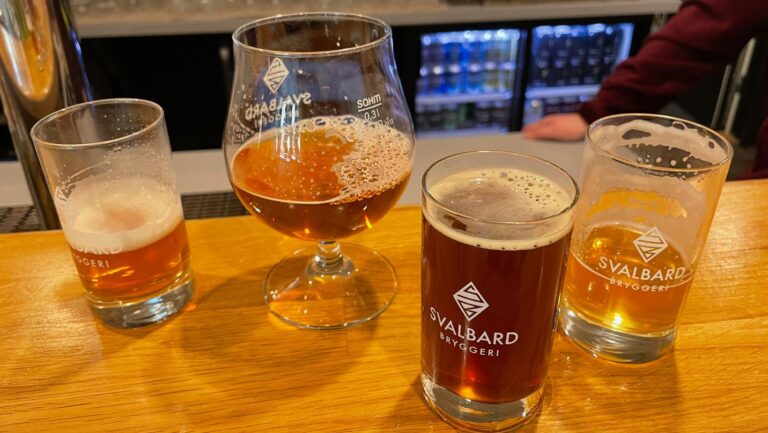
These restrictions on alcohol can be a surprise to many newcomers used to a much more liberal system. You’ll need to get used to planning in advance of social gatherings, and especially before public holidays.
Trust in the System
Norwegians' high level of trust in their government and public institutions significantly influences their daily lives, including their widespread adoption of digital services.
This trust is manifested in the seamless integration of technology into various aspects of public and private transactions, such as healthcare, education, and banking. Such systems offer efficiency and transparency, reinforcing public confidence.
For newcomers, this pervasive trust in and reliance on digital solutions might require some adjustment, especially for those from countries where digital integration is less extensive or where institutional trust is lower.
But the Norwegian “trust in the system” goes beyond digital services. Generally speaking, the locals are happy to pay taxes, have trust in the police, and believe in the fairness of the judicial system.
This comprehensive trust is also reflected in their adherence to rules and regulations without constant oversight, contributing to a relatively low crime rate and high social cohesion.
Social Integration
Integrating into Norwegian society can be a slow process. Norwegians are often described as polite but reserved, and making friends in Norway can take time.
This can be particularly challenging during the long, dark winter months when social gatherings are less frequent, and the cold weather encourages more indoor activities.
Newcomers are encouraged to join clubs or groups based on their interests, as these are excellent ways to meet people and form friendships.
Learning Norwegian is also crucial for deeper integration, even though most Norwegians speak excellent English. Speaking the local language can greatly enhance social interactions and the overall integration process.
Light and Dark Seasons
The dramatic difference between the light summer months and the dark winter months is another significant adjustment.
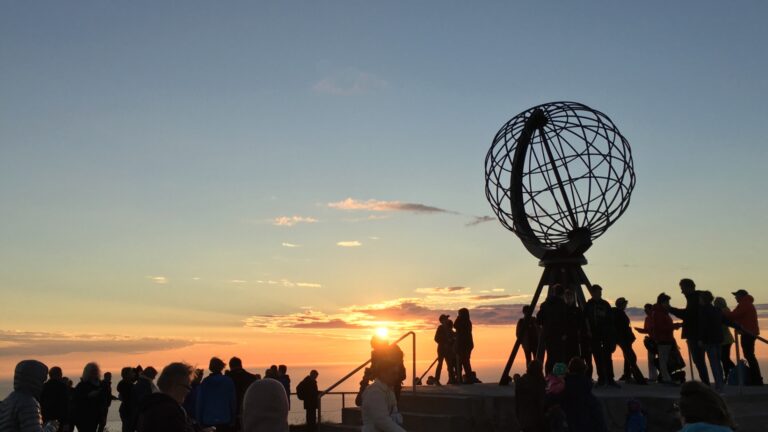
In the north of Norway, during the summer, you can experience the midnight sun, where the sun never sets, while in the winter, the polar night means the sun doesn't rise at all for several weeks.
Even in more southern parts of Norway, the short days of winter can be challenging, with only a few hours of daylight.
This can affect people's mood and energy levels, making it important to find ways to stay active and engaged, regardless of the season.
Vitamin D supplements are common among locals to combat the effects of limited sunlight during the winter. If you’re worried about the adjustment, you could try light therapy lamps.
By understanding and gradually embracing these cultural nuances and lifestyle adjustments, newcomers can not only navigate but also deeply enjoy their life in Norway.
It’s about finding a balance between maintaining one’s cultural identity and opening up to new experiences and ways of living.
What were your biggest culture shocks when moving to Norway? I'd love to hear your experiences down in the comments.

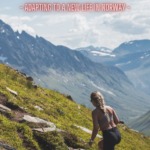

Actually a lot of what you’ve mentioned was the same for me moving from England to Germany. Living in Bavaria with my new wife five years ago it was a shock Sunday being such a quiet day with no shops open. Even weekdays supermarkets would be closed at 10 p.m.
Having travelled to Norway several times and having friends there I can see the similarities.
Understanding how Norwegians tell the time took getting used to eg 7:25 = fem på halv åtte. Please correct me if I am wrong.
11 years ago living in Norway, I found it both easy and difficult to be a
vegetarian / vegan. Easy because meats / fish were so expensive; difficult
because the choice and variety of fresh produce and items needed for a creative vegan / vegetarian diet were scarce. I longed for a Whole Foods Market, a Trader Joes or a Healthy Living! I ended up eating a lot of bland food, lots of mixes, though if I had lived there longer I would have scoped out Asian markets, etc. The bread, though was fantastic.
Daily shop/store hours 9-3 instead of an 8-5, 8-4 or 7-3